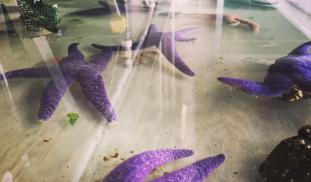Please wait...
About This Project
Recently, a devastating epidemic called "sea star wasting disease" (SSWD) has killed huge numbers of sea stars on the west coast of North America. One common and ecologically important species (Pisaster ochraceus) has a mutation that seems to protect carriers. Here, I will use high-throughput RNA sequencing to identify how that mutation alters the tissue and cellular composition of sea stars. These data will be key in predicting how Pisaster will recover from this disease outbreak.






